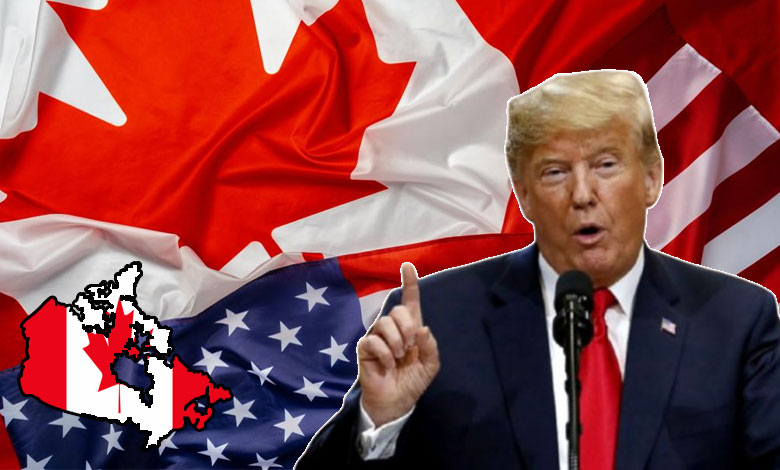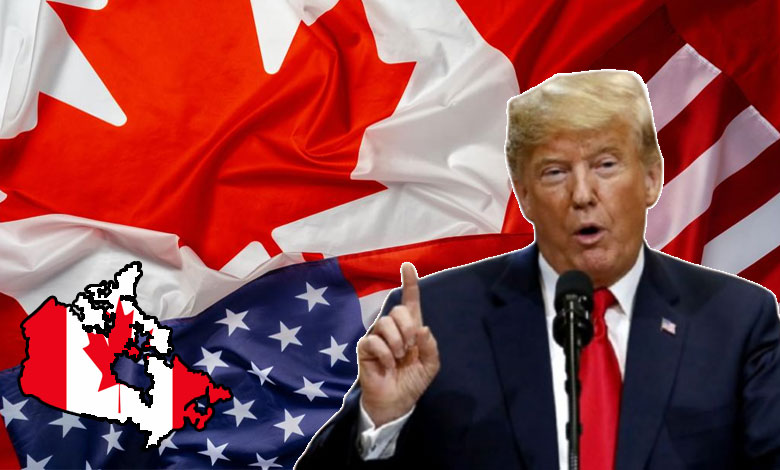Trump Threatens to Use ‘Economic Force’ to Make Canada a Part of the United States

Washington: US President-elect Donald Trump on Tuesday suggested using “economic force” to make Canada a part of the United States, a comment that has drawn sharp criticism from Canadian Prime Minister Justin Trudeau.
Table of Contents
During a press briefing at his Mar-a-Lago estate in Florida, Trump was asked if he considered military force to annex Canada. He firmly responded with a “No,” but emphasized that economic power could achieve his goal of incorporating Canada as the United States’ 51st state.
Trump’s Vision for U.S.-Canada Union
Trump explained that uniting the U.S. and Canada would eliminate what he referred to as the “artificially drawn line” between the two countries and provide mutual benefits, including improved national security. He pointed out that the U.S. already invests heavily in Canada’s protection.
“Canada and the United States, that would really be something. You get rid of that artificially drawn line and you take a look at what that looks like, and it would also be much better for national security. Don’t forget, we basically protect Canada,” Trump remarked.
Criticism from Canadian Prime Minister Justin Trudeau
Canadian Prime Minister Justin Trudeau, who resigned the day before, strongly rejected Trump’s comments. On social media, he said, “There isn’t a snowball’s chance in hell that Canada would become part of the United States,” adding that workers and communities in both countries benefit from their strong trade and security partnership.
Trudeau also emphasized that the relationship between the U.S. and Canada is based on mutual respect and cooperation, not one of economic force or coercion.
Trump’s Criticism of U.S. Financial Support for Canada
Trump further criticized the U.S. for what he described as financially supporting Canada at the expense of American taxpayers. He highlighted the U.S. trade deficit with Canada, claiming that the U.S. does not need Canadian products such as cars, lumber, and dairy.
Also Read: Trump Proposes Renaming the Gulf of Mexico to This
“We’re spending hundreds of billions a year to protect it. We lose in trade deficits… We don’t need their cars. You know, they make 20 percent of our cars. We don’t need that. I’d rather make them in Detroit,” Trump asserted.
He also pointed to Canada’s reliance on U.S. trade for economic stability, particularly with the automotive industry, saying, “Canada wouldn’t be able to function if we didn’t take their 20 percent of our car market.”
Trump’s Broader Economic Views
Trump continued to criticize the U.S. relationship with other countries, including the European Union, stating that the U.S. cannot afford to sustain large trade deficits with foreign nations. He emphasized that such financial arrangements might be acceptable if Canada were a U.S. state but not as a separate country.
“Our military is at their disposal, all of these other things. They should be a state,” Trump concluded, reiterating that the U.S. would no longer tolerate what he sees as one-sided financial burdens.
As tensions rise over these remarks, the conversation about the future of U.S.-Canada relations and the economic dynamics between the two countries remains a significant point of discussion.

